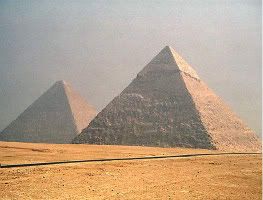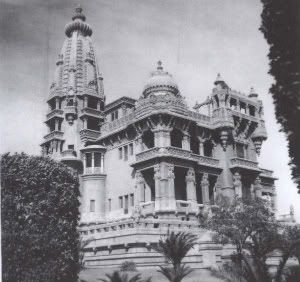Saturday, June 30, 2012 was
one of the most memorable days for Egyptians, whether they supported or rejected
the latest political changes. The newly elected Egyptian president, Dr. Mohamed
Morsi, was sworn in. It is the first non-military president in Egypt since
1952.
I have been following closely
the recent events in Egypt, and they were many.
Since the Revolution of
January 25, 2011, there is a continuous development in the political scene:
Elections, rise of new political parties, dissolution of the elected
parliament, first stage presidential elections and second stage presidential
election. Meanwhile the people’s demonstrations were carried on every Friday in
Tahrir square until last week when the newly elected President, Dr. Mohamed
Morsi, addressed the demonstrators in the Square. There are still few demonstrators
in Tahrir Square, however, the square is now open
to traffic.
The political changes
occurring in Egypt in the last 18 months are of great interest to me, however,
this blog is not where I would like to discuss them. I share my political
interests with that of my husband on his blog: www.mid-east-today.blogspot.com. I would,
however, like to mention here a linguistic variation demonstrated by the last
two candidates during their campaigns for the presidency.
The political discourse of
the last two candidates differed greatly. Dr. Ahmad Shafik in his delivery of
written speeches shifted regularly between Egyptian colloquial Arabic (ECA) and
modern standard Arabic (MSA). His MSA was mediocre. He wreak havoc upon al?i3raab الاعراب,
and he used only ECA when addressing the
public without a written speech.
Dr. Mohamed Morse, on the
other hand used MSA when delivering either his written or non-written speeches.
He was eloquent in his use of MSA avoiding all grammatical errors. Actually,
whenever he made mistakes he immediately corrected them. Dr. Amr Moussa, former
Egyptian foreign minister and former chairman of the Arab League was quoted in
al Wafd newspaper ( June 30) saying أعجبني
إصراره علي النطق العربي الصحيح وعودته إلي تكرار الجملة إذا أخطأ فيها نحوياً .
Furthermore, Dr. Morsi used a
specific genre in his political discourse. Whenever he wanted to stress a point
in his speeches to the public, he always repeated the last phrase of the sentence
that incorporated the idea he wanted to emphasize. As for ECA, he used it sparely,
and only when he felt inclined to be informal while addressing the public using
slogans the demonstrators have been using.
Morsi’s diglossic variation
is what Clive Holes refers to as ‘a conscious choice ‘ (Holes 1993, The uses of variation: A study
of the political speeches of Gamal Abd-al-Nasir. Perspectives on Arabic Linguistics
v: 13-45). This was definitely not the case of Dr. Shafik, his linguistic
variation was different in nature and definitely not by choice. It remains to
be examined further.
As Reem Bassiouney in her
book Arabic Sociolinguistics (2009) stated” “The diglossic situation in the
Arab world adds a new dimension to our understanding of language variation and
change in the regions.” The political discourse used by the Egyptian candidates is in my humble opinion a situation of language variation that
is worth studying by sociolinguists.
My second recent linguistic
observation is the language used by some young Egyptians in their online page titled
‘Asa7be Sarcasm Society’. They began this new Egyptian network two months ago.
Asa7be اساحبي is koined out of the word yaSaHbi ياصحبي.
Reem Bassiouney in her book
Arabic Sociolinguistics (2009, P. 118) quotes
Versteegh’s statement “The process of Koineisation…is in most cases connected
with situations in which groups of speakers were thrown together by accident.”
(P.118)
In the case of the ‘Asa7be
Sarcasm Society’ the group of young Egyptians were not thrown together by
accident. They were brought together by a common interest, which is to humor
and criticize the changes they see happening in post-revolutionary Egypt: politically,
socially, and linguistically. The result of such common interest, is in my
opinion, a type of koine or a common language the young have developed. A
salient phonological variation used in Asa7be is the replacement of emphatics
by non-emphatics. For instance مسير instead of مصير ,
اسفحة instead of الصفحة
Furthermore
Arabizi is also used on Asa7be to communicate the authors’ ideas. Arabizi is
now becoming very popular among the young in Egypt as a fast means of communication.
It is used on Facebook, Twitter and Asa7be.
Some
have accused Asa7be’s authors of destroying the Arabic language by using
Arabizi and phonological variation in their script. Not so, say the young
authors. They have developed a script and koined a language that has attracted
a large number of people’s attention in Egypt. Many of the young Egyptians I
have met quote Asa7be and use its language to interject humor in their speech.
Do check it yourself! Asa7be.com, Facebook.com/Asa7bess.
An
official site will be also available soon: http://www.Asabess.com
Copyright © 2010 Aleya Rouchdy, All Rights Reserved




